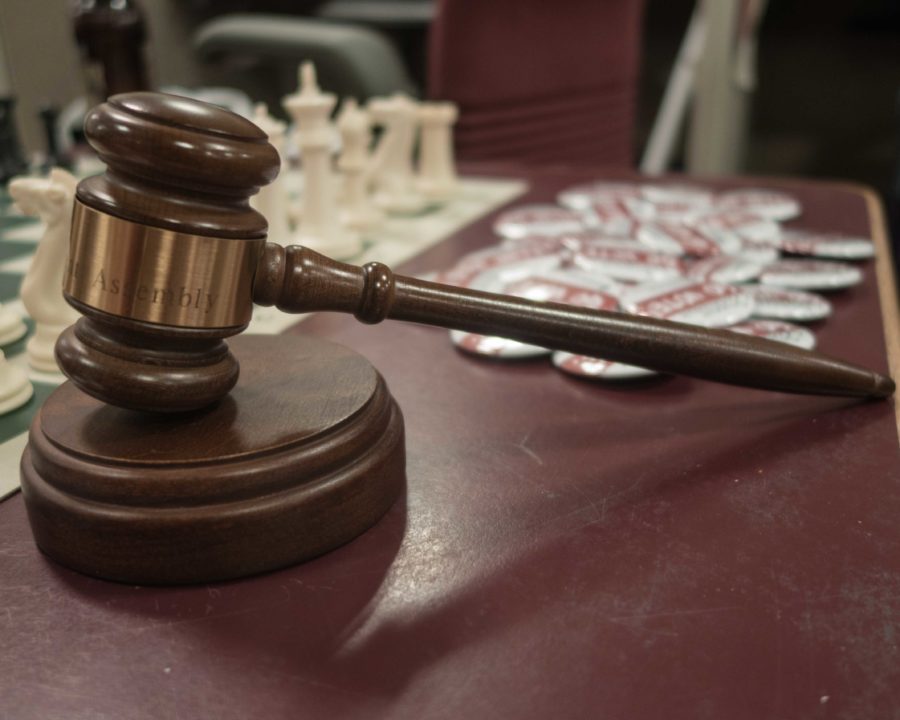With student elections rapidly approaching at Santa Rosa Junior College, student senate members urge students to vote on an amended constitution they believe will best govern and represent the student body.
The student senate approved the revised constitution and a newly established Student Bill of Rights in a senate meeting March 23. In another meeting March 30, the amendment to add the Bill of Rights to the constitution was struck from the ballot.
According to Virginia Kerr, vice president of programs, certain administrators had concerns with some of the wording and framing of the Bill of Rights, believing it could conflict with school policy.
Alex Smith, VP of membership and marketing said he felt disheartened with the removal of the Bill of Rights from the ballot, but the senate will not stop working on it.
“I think it’s impossible for a document of this nature to be perfect, but we will continue to work on it until concerns are met and it can go to the students for a vote,” Smith said.
Kerr said while the Bill of Rights may need more work to coordinate with policy, she felt the constitution came out stronger, clearer and less ambiguous than the former constitution.
Student senate members started revising the constitution in June 2014. Student Senate President Joshua Pinaula said one of the biggest focuses in the revision was making it more concise and representative of the whole student body.
Dean of Student Affairs Robert Ethington said, “My philosophy as the Student Senate advisor is that students need to create a government that works best for them to accomplish their goals of serving their fellow students…within existing policies and laws of course.”
With the reworking of the constitution, the change in senate position titles and the emphasis on student life, Pinaula feels they can encourage more students to participate in the college community.
“When you create an environment you want to be in, then you increase the chances of people getting involved,” he said.
According to Advisor for Student Senate Affairs Zack Miranda, the biggest change in this constitution is the revision of bylaws, making it more about the student body and who represents them. Bylaws are a set of internal rules and regulations for how procedures work in the student senate.
“This is going to be a great way for them to try new things, rearrange the way their policies and procedures work to try to get more work done in a year and try to address students’ needs more quickly,” Miranda said.
According to Miranda and Pinaula, the election code went through a substantial revision a year ago to make it easier for students to propose initiatives and vote, thereby increasing student interest and involvement.
“I think we’ve only done things to make it more fair to students,” Pinaula said. “There seemed to be ridiculous quantifiers to do anything if you wanted to get involved. We changed a lot of that up, so I think it’s a lot less corrupt.”
Over the past year, the senate has been revising an unofficial Bill of Rights made in the 1960s along with the constitution to clearly state what rights students have on campus. Kerr feels the revising of the Bill of Rights was a little rushed, and there needed to be more work done on it.
Kerr intends to run for re-election, and one of her goals is to collaborate on restructuring the Bill of Rights for the next spring election.
“I’d like to create a pathway of where this document should go,” she said. “I can definitely see it being a difficult road to go down. But I would like to see the academic senate [and the All Faculty Association] look at this; I would want as much input as possible.”
Pinaula said he was less involved in revising the Bill of Rights. “I was way more focused on ensuring that the constitution was finished, because I think that’s a more vital document for the future of the college,” he said.
Miranda said he puts a lot of importance in the constitution, because it will provide better representation and benefits for students by expanding what the senate can do for them.
“I see a lot of benefit coming with this new constitution,” he said. “The restructuring that they’re doing and the increasing of positions can help the student government do more work, do better work, in the future.”
The constitutional amendments, along with other initiatives, referendums and prospective student senate representatives, will be voted on in the general student election during the third week of April.
“Please vote on 4/20,” Pinaula said.




